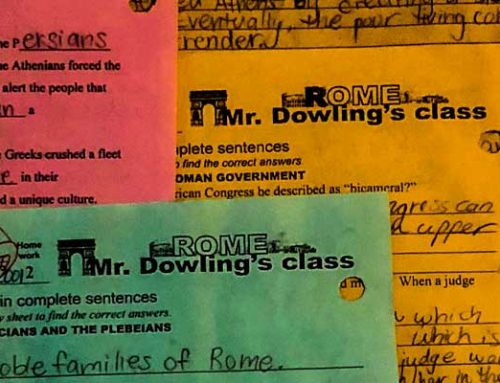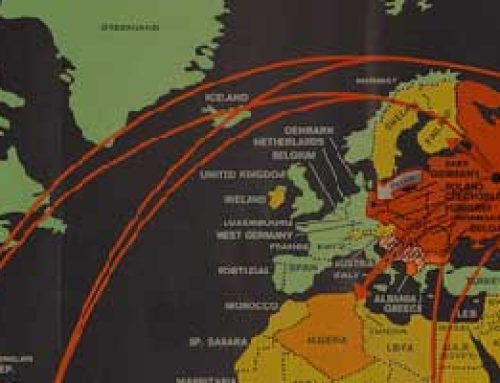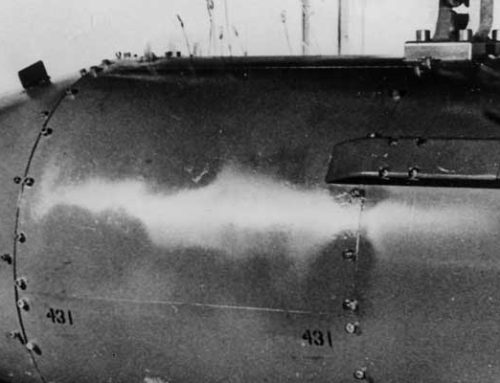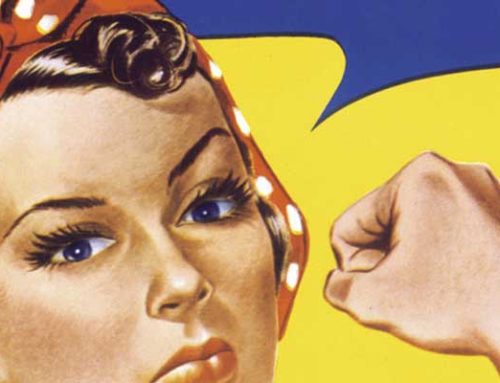Franklin Roosevelt died suddenly on April 12, 1945, and Harry Truman became president. Many Americans believed he was unqualified for the job. One person said, “If Harry Truman can be president, my neighbor can be president.” Considered by sonme to be an ordinary man, President Truman would make the most extraordinary decision of the twentieth century.
America was winning the war against Japan, but the Japanese were fighting valiantly. The enemy would not be defeated unless the American army invaded Japan. Experts concluded more than one million Americans would die in the assault on the Japanese home islands.
Some people urged the president not to use the atomic bomb on Japan. General Dwight Eisenhower was the commander of the Allied forces in Europe and would eventually succeed Truman as president. Eisenhower opposed the bomb for two reasons. “First, the Japanese were ready to surrender and it wasn’t necessary to hit them with that awful thing. Second, I hated to see our country be the first to use such a weapon.”
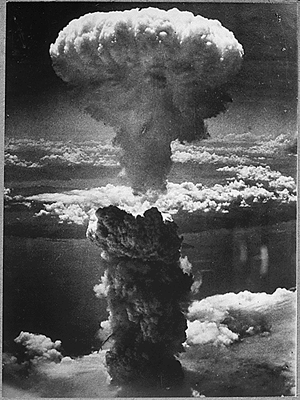
Mushroom_cloud
The mushroom cloud that followed the dropping of the second atomic bomb on Nagasaki, Japan on August 9, 1945.
President Truman gave the order to drop an atomic bomb on the Japanese city of Hiroshima in August 1945. Even after testing, the American scientists were unsure of what would happen. Truman’s advisors considered warning the Japanese first, but the enemy might have moved Allied prisoners to the site. They also rejected dropping the bomb in the ocean. President Truman decided the war would not end unless the Japanese government understood the damage America would inflict.
The world entered the frightening atomic age at 8:14 a.m. local time in the Japanese city of Hiroshima. One minute later, an atomic bomb destroyed the city. The first flash of the explosion was as bright as a thousand suns. It is estimated that 80,000 people were instantly vaporized. The blast created violent winds that caused firestorms. Co-pilot Robert Lewis said he could taste the atomic fusion. He later wrote in his journal, “My God, what have we done!” Another crew member said, “Thank God the war is over and I don’t have to get shot at. I can go home.”
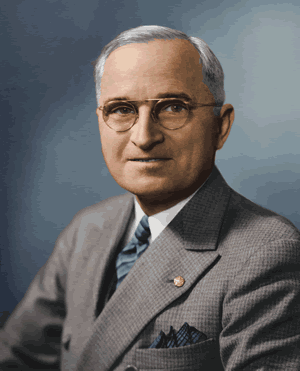
Harry_S_Truman
President Harry S. Truman (1884 – 1972) succeeded to the presidency when Franklin Roosevelt died in 1945.
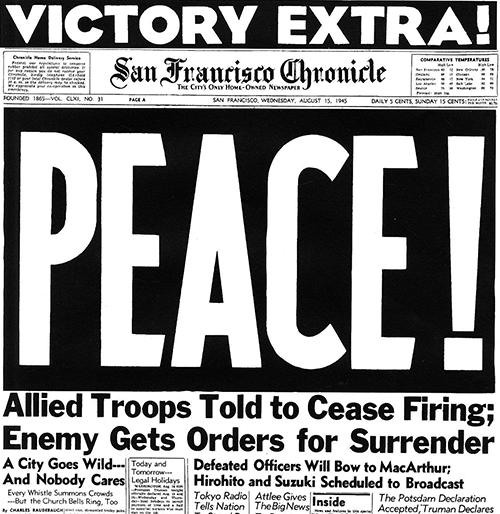
Newspapers across the United States announced Japan’s surrender and the end of World War II.
Truman later said he did not agonize over using the bomb. He wanted to make Japan surrender without an invasion. “The atom bomb was no ‘great decision,'” he later said. “That was not any decision you had to worry about.” A second bomb destroyed the city of Nagasaki. Japan agreed to surrender a week later.
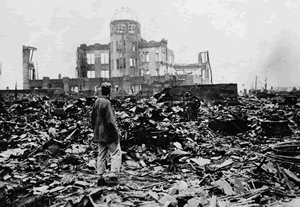
Hiroshima
One person later wrote of the aftermath of the bombing, “a good deal has been written about Hiroshima, but no-one can describe adequately the smell — and the flies.”
The Japanese feared brutal treatment after their defeat, but General Douglas MacArthur, the Supreme Commander of the Occupied Forces, was determined to treat his former enemy with dignity and respect. He decreed that any American soldier that so much as slapped a Japanese would be imprisoned for five years. The Japanese were also courteous and respectful toward the Americans. The climate of trust and respect between the two nations allowed Japan to develop into one of the world’s wealthiest nations in the decades following World War II’s end.
Resources
Download this lesson as Microsoft Word file or as an Adobe Acrobat file.
Mr. Donn has an excellent website with a sections on World War I and World War II.
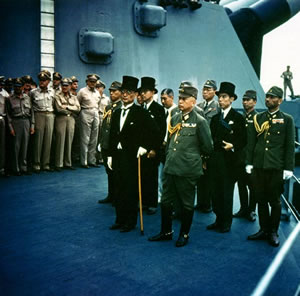
Japan_surrender
Representatives of the Japanese government formally surrender on board USS Missouri September 2, 1945.

